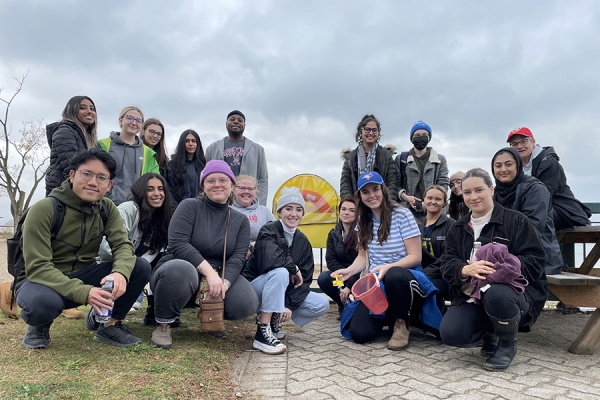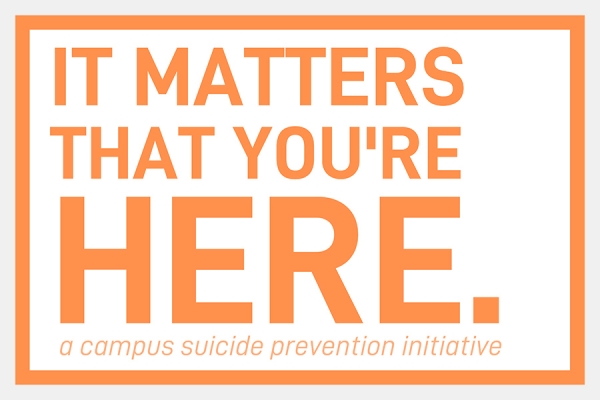A new interdisciplinary class that blends law with science encourages UWindsor students to step out of their academic comfort zone.
In the Special Topics in Earth and Environmental Sciences/Advanced Tort Law course, the students learn about the physical and social aspects of water hazards and beach safety as well as the legal liability of public authorities for drownings, near drownings, and other personal injuries sustained in and around water.
The course is co-taught by the Faculty of Law’s Lisa Trabucco and Chris Houser, dean of science, currently serving as interim vice-president research and innovation.
“It’s been really fun to teach. We’ve both gained a great deal of insight into cross-disciplinary teaching and learning aspect,” says Dr. Trabucco.
“I’m finding the students’ interactions with one another fascinating because, ultimately, it’s about learning to communicate clearly across disciplines and professions. We rely on experts. We need to understand one another and be understood.”
Working in interdisciplinary groups, the law students learn how to work with experts and their testimony, and the science students fill the role of expert witness, learning how to describe and report on the conditions that may have contributed to a drowning, in the context of a legal proceeding.
“It has been fascinating to watch the students learn from one another — it’s about blending two disciplines where they are all talking about pretty much the same things but coming at it from different perspectives. The law students are learning that we need to rely on experts and others’ expertise. Learning the law is not just about reading a court decision,” says Trabucco.
“They’re learning what questions to ask an expert to gain enough knowledge to transfer that into their legal case and science students are learning what it means to be an expert witness and the value of their expertise in a legal matter.”
The students have read court decisions, considered expert evidence concerning rip currents and water hazards in legal cases. On Oct. 31, the class went to Sandpoint Beach in Windsor to conduct a safety audit on its waterfront.
“I think Sandpoint was eye-opening to the law students, particularly. It’s important to go out there to the site of an incident. We can learn a lot by seeing with your own eyes,” says Trabucco.
She adds that going on site allows the students to consider physical location, human behaviour, and policy considerations, such as public safety, on the part of a municipality.
Through the class, the students review actual beach safety court cases, including cases that Dr. Houser has been involved with in Canada and Costa Rica.
“We need to develop more courses that cross disciplines and faculties to bring students with different disciplinary backgrounds together to collaboratively explore complex situations,” says Houser.
—Sara Elliott
 Virtual Open Day on Thursday, Dec. 8, will accommodate students from anywhere in the world considering the University of Windsor.
Virtual Open Day on Thursday, Dec. 8, will accommodate students from anywhere in the world considering the University of Windsor.




